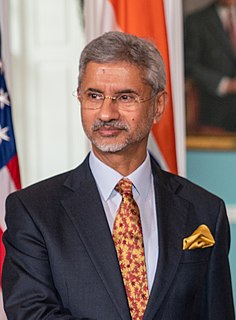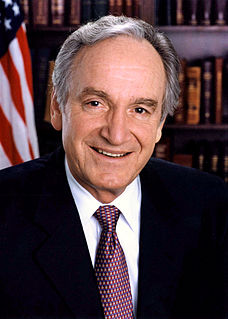A Quote by Trita Parsi
The United States has weakened itself with Iraq; Iranians feel victorious - they feel capable of filling the void. I think from the very outset the nuclear issue has been secondary to the more strategic outlook, in which the United States has, since 1991, pursued a policy that it cannot permit any country in the region to become too powerful and challenge American hegemony.
Quote Topics
Related Quotes
I think that the big issue people haven't talked about for the Iranians - and, obviously, for the Americans - is Iraq. Iran can be a tremendous help to the United States in Iraq. I don't think the Iranians have a particular preference for John McCain or Barack Obam - for them, it's the candidate who is willing to recognize that they are an important country that can have a serious effect on Middle East peace.
I think the President's decision to withdraw the United States, to keep a campaign promise in Iraq, without leaving a stay-behind force was a mistake, and I hear that from veterans in Wyoming and from parents who lost children fighting in Iraq. We're seeing it, though, around the world. When we, the United States leads a vacuum anywhere, that emboldens others to go in, when there is no sense of deterrence by the United States that lets bad actors move and fill the void.
By the end of the 1960s, the United States owned more than half of the Indian rupee money supply, and that had been acquired through food aid. So I think it's very interesting to see the very long history of how sovereignty and food go together. When some countries remove another country's ability to feed itself, it is a very powerful tool. Imperialist countries, like the United Kingdom, like the United States, have used it for centuries.
I think that it's very important to have the United States' engagement in many situations we have around the world, be it in Syria, be it in the African context. The United States represents an important set of values, human rights, values related to freedom, to democracy. And so the foreign policy engagement of the United States is a very important guarantee that those values can be properly pursued.
Whereas Iraq has consistently breached its cease-fire agreement between Iraq and the United States, entered into on March 3, 1991, by failing to dismantle its weapons of mass destruction program, and refusing to permit monitoring and verification by United Nations inspections; Whereas Iraq has developed weapons of mass destruction, including chemical and biological capabilities, and has made positive progress toward developing nuclear weapons capabilities
It was not the United States who invaded Kuwait; it was Iraq. It was not the United States that went to war with Iran; it was Iraq. It was not the United States that fired chemical weapons at Iran; it was Iraq. And it was not the United States that murdered innocent Iraqi citizens with chemical weapons; it was Iraq.
We often forget that Iran has a long tradition and history with the United States. Iranians have been coming to the United States as students for decades. American businessmen were in Iran developing the oil fields. ...There was an American financial advisor to the Iranian government in the early part of the century.
In the Islamic world, the U.S. is seen in two quite different ways. One view recognizes what an extraordinary country the U.S. is.The other view is of the official United States, the United States of armies and interventions. The United States that in 1953 overthrew the nationalist government of Mossadegh in Iran and brought back the shah. The United States that has been involved first in the Gulf War and then in the tremendously damaging sanctions against Iraqi civilians. The United States that is the supporter of Israel against the Palestinians.


































